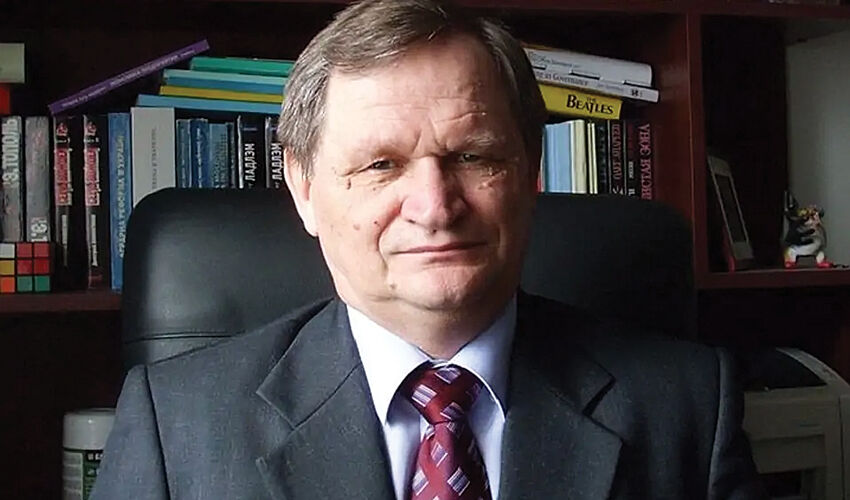
Alexander Muravsky
According to the SP Report on the Management and Use of Public Finances and Public Property in 2024, the implementation of state budget expenditures last year was 87.2% overall, while the realization of capital investments was 56.1%. This indicates problems with planning, contracting and implementation of projects.
According to the official reports on foreign assistance, in 2022-2023, international partners allocated funds to Moldova totaling 2,631.1 million euros. Of these, the lion’s share – 1,220.5 million euros (46.38%) – is in the form of budgetary support, 792.9 million euros (30.14%) were allocated to finance investment projects and 617.7 million euros (23.48%) in the form of technical assistance.
This distribution shows that almost half of the external assistance went directly to the budget, about a quarter to institutional capacity building, and a third to investment projects, say the authors of the SP report. And the quality and pace of their implementation directly affect the availability of external resources in the future.
The assistance provided to Moldova by development partners is based on international treaties and bilateral agreements. At the same time, its volume is not guaranteed, but directly depends on the ability of public authorities to fulfill their commitments: budgets, deadlines and achievement of the objectives of each project. Failure to fulfill these conditions can lead to a reduction in funding or even to the loss of funds already allocated, the document emphasizes.
The audit conducted by the SP 2024 concerned the performance of 12 units for the implementation of projects financed by external assistance. It revealed systemic weaknesses that affect the management of external funds. These include the lack of a unified and clear regulatory framework governing the status of such units, their functioning and evaluation, and the absence of performance indicators that would allow real monitoring of results. The authors also point to “ambiguity in human resources, both in terms of recruitment and remuneration”. As well as risks in ensuring transparency in public procurement.
“While notable successes have been achieved in some cases, they remain isolated and heterogeneous, limiting the overall impact of projects on development goals,” the report’s authors note. They cite two externally funded projects as examples.
For example, “the Emergency Response to COVID-19 project was characterized by high absorption rates and operational flexibility, allowing the country to quickly adapt to critical health needs.”
The onset of the COVID-19 pandemic required a rapid and well-funded response. In this context, on April 28, 2020. Moldova signed a funding agreement with the International Development Association (IDA) for €52.9 million for an effective response to the COVID-19 pandemic.
The project was structured in two main components and received two additional financing – $3.48 million (December 2020) for training of health personnel and strengthening diagnostic and testing capacities, and €24.8 million (April 2021) for procurement of vaccines and strengthening of immunization infrastructure.
During implementation, the project was restructured to extend the timeframe and reallocate funds. In particular, €11.3 million – for the purchase of medical equipment and renovations in intensive care units. And 13.5 million euros – for renovation of the National Public Health Agency and territorial centers.
The total actual expenditure of the project amounted to €77.44 million, including 31.69% for the procurement and distribution of vaccines (€24.54 million), 31% for capacity building of the health system (€23.90 million) and 28% for financial and social support to households (€21.90 million). Due to this level of execution, as well as exchange rate differences, the unutilized balance at the end of 2024 amounted to €257.98 thousand. The Court of Auditors issued an unqualified opinion on the financial statements of the project. They were properly and completely prepared in accordance with the statutory requirements.
At the same time, the project “Improving the Quality of Education” was characterized by the auditors of the Audit Chamber as an example of insufficient coordination in the disbursement of funds. The $59.8 million project is financed by a loan from the International Bank for Reconstruction and Development (IBRD) and two grants ratified by Parliament in 2023.
Of this, $18.25 million is planned to improve the quality of teaching, $33.17 million to modernize the learning environment, and $8.38 million to strengthen education and project management. The implementation period covers October 2023 to December 2029.
In 2024, when the audit was conducted, expenditures were incurred only under component III of the project in the amount of €669.9 thousand (36.6% of the planned amount). This indicates a low level of implementation in the first year of actual activity.
Most of the funds utilized were for consulting services in the amount of €519.3 thousand, representing 77.5% of the total expenditure. Other significant expenditures included the purchase of goods and services (€109.8 thousand) and the acquisition of fixed assets (€37.3 thousand). However, components I and II (aimed at improving teaching and modernizing school infrastructure) were not launched in 2024 as they were in the process of contractual revision.
Although the overall financial picture is compliant, the audit identified a number of weaknesses, namely accounting classification errors. For example, payments for professional training and protocol costs were recorded under the category “Consulting Services”.
The audit revealed a lack of uniformity in the approach to contractual terms, especially with regard to the payment of social contributions and taxes. In some cases, contracts do not fully comply with the World Bank’s standard model. Significant differences between the reports sent to the Ministry of Finance and those submitted to the funder are also questionable. There was a difference of 43.6 million lei reported through the information program “Budget”- GDP and the data provided by the WB.
The Ministry of Education and Science presented the accounting and justification of expenditures incurred in 2024. Therefore, the audit on the project ended with an unqualified opinion. At the same time, the project “Improvement of Education Quality” is at the initial stage, with a slow start and delays in launching the main components, the SP specialists stated.
According to former Deputy Prime Minister and Minister of Economy Alexander Muravsky, one of the reasons for this is that the country lacks personnel specialized in project development. “We have few such specialists, and as a rule, they are engaged in several projects simultaneously,” he says. – There are also few companies to carry out the work. For this reason, it is impossible to implement several projects simultaneously on water supply and sewerage, for example.”
– The last regional development project, funded by the German government, revealed various inconsistencies that prevented its implementation according to plan,” Muravsky said. – The German partners demanded the creation of a council of village citizens, and the mayor’s office failed to meet the deadlines. The project must be coordinated with the financing party, and this can also be delayed. Our developers calculated the costs according to the norms, which are higher than the German ones. And they demanded that they be adjusted. A lot depends on consultants and the need to coincide in time. This whole chain of inconsistencies leads to the fact that the funds allocated are not utilized within the timeframe set by the agreement.

